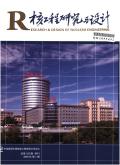Corrosion Property of Container Using Hybrid Material for Thermal Decomposition Process of Sulfuric Acid
引用次数: 0
Abstract
A thermochemical water-splitting iodine-sulfur process (IS process) is one of candidates for the large-scale production of hydrogen using heat from nuclear energy. Severe corrosive environment which is thermal decomposition of sulfuric acid exists in the IS process. To achieve an industrialization of massive hydrogen production system, one of the key factors is the development of structural materials for the severe corrosive environment. A hybrid material with the corrosion-resistance and the ductility had been made by a silicon powder plasma spraying and laser treatment. To confirm the applicability of the hybrid material as the structural material, corrosion tests of the hybrid materials had been performed in 95 mass% and 47 mass% boiling sulfuric acid. The corrosion resistance of specimen in the condition of 95 mass% boiling sulfuric acid had been excellent. This was attributed to the formation of SiO2 on the surface. To confirm the production characteristics as a container using the hybrid material, the container which has a welded part, a chamfer, a curved surface had been experimentally made. A configuration of the container had been 150mm inside diameter, 120mm in height and 6mm in thickness. The substrate of the container made of Hastelloy C276® superalloy had included TIG weld part. To improve the corrosion resistance of the container, pre-oxidation was performed at 800°C for 100 hours in air. There was no detachment of the plasma spraying and laser treated layer on the base metal and the welded part. The pre-oxidized container using hybrid technique was prepared for the corrosion test in boiling sulfuric acid to evaluate the characteristics of the container.混合材料硫酸热分解容器的腐蚀性能研究
热化学水裂解碘硫工艺(IS工艺)是利用核能热大规模生产氢的候选工艺之一。is工艺中存在硫酸热分解的严重腐蚀环境。为了实现大规模制氢系统的工业化,开发适应严重腐蚀环境的结构材料是关键因素之一。采用硅粉等离子喷涂和激光处理制备了一种既耐腐蚀又具有延展性的杂化材料。为证实该杂化材料作为结构材料的适用性,对该杂化材料在95%质量%和47%质量%沸腾硫酸中进行了腐蚀试验。试样在95%质量%沸腾硫酸条件下具有良好的耐蚀性。这是由于在表面形成了SiO2。为了确定混合材料作为容器的生产特性,实验制作了具有焊接部分、倒角、曲面的容器。集装箱的配置为内径150毫米,高120毫米,厚6毫米。哈氏C276®高温合金制成的容器基底包含TIG焊接部分。为了提高容器的耐腐蚀性,在空气中800℃预氧化100小时。等离子喷涂层和激光处理层在母材和焊接件上均无脱离现象。采用混合技术制备了预氧化容器,进行了沸腾硫酸腐蚀试验,以评价容器的性能。
本文章由计算机程序翻译,如有差异,请以英文原文为准。
求助全文
约1分钟内获得全文
求助全文

 求助内容:
求助内容: 应助结果提醒方式:
应助结果提醒方式:


